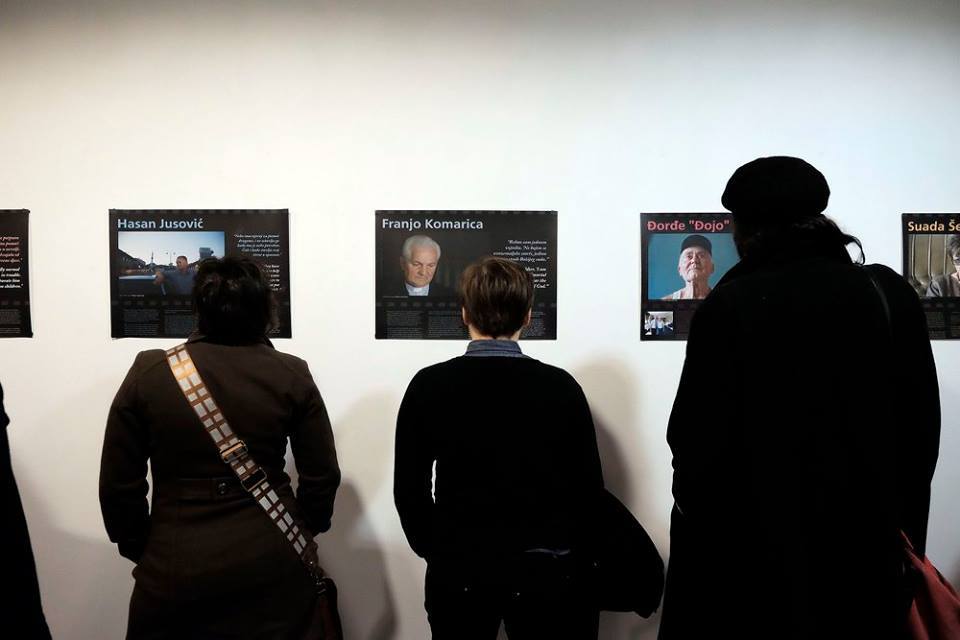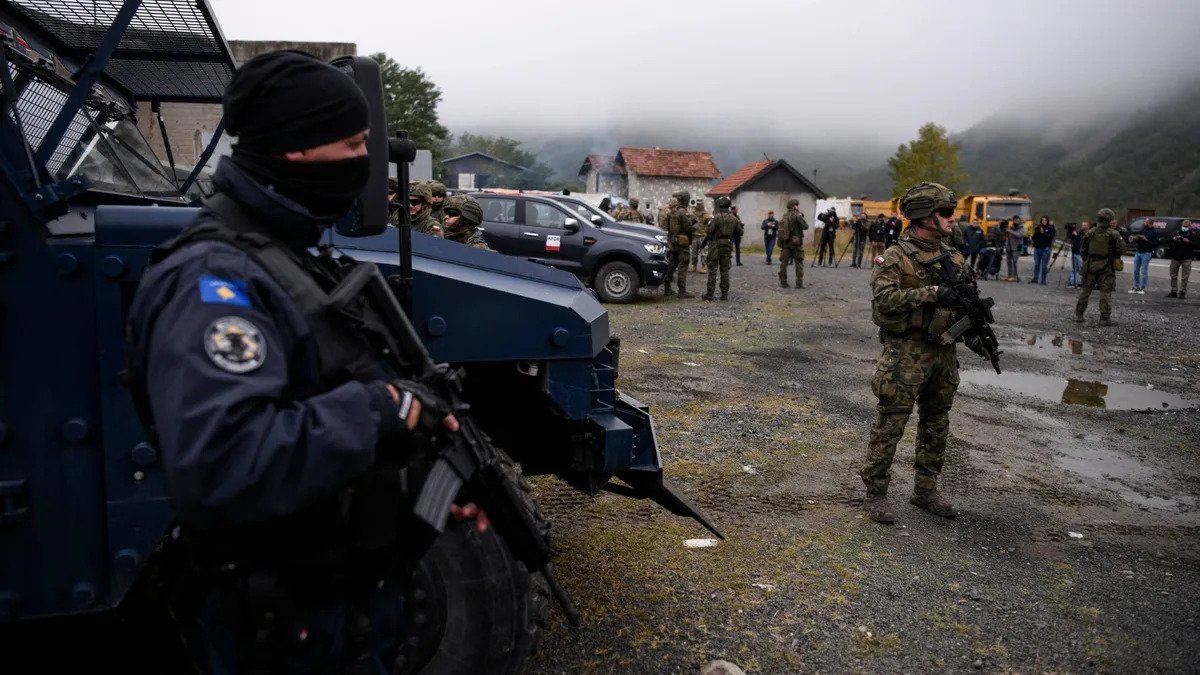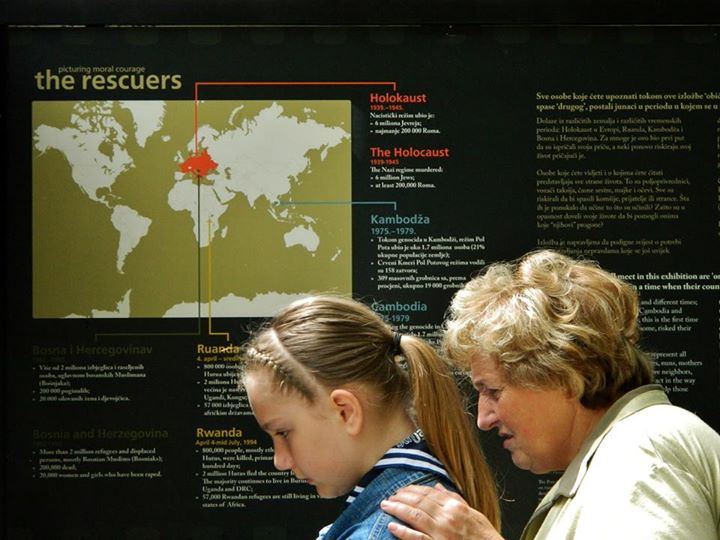Western Balkans, Storytelling, Visual Arts, Conflict Prevention, Post-war Reconciliation, Interethnic Dialogue

Ordinary Heroes is a multimedia educational peacebuilding program that uncovers and shares stories of rescue and moral courage from the Bosnian war, the Holocaust, and the Rwandan genocide through photography exhibitions and documentary films. It was created in 2010 to facilitate reconciliation, interethnic tolerance, understanding, and the restoration of intergroup relationships in Bosnia and Herzegovina, Western Balkans and the world. By focusing on individual stories of survival and rescue, they encourage discussions on moral courage and what prevents people from helping each other across ethnic boundaries.
New generations of young people in Bosnia and Herzegovina, but also the whole Western Balkans, are getting disconnected from the wars in the 1990s, as most of them didn’t experience them, or they have no adequate sources to learn about them. Consequences of the dissolution of Yugoslavia are still present due to lack of official approaches to dealing with the past; rising nationalism and misinformation about the past, leaving the youth with the outcomes of the conflict, but not offering comprehension of the context. Most of the mainstream media are not interested in sharing positive stories, and there is a lack of joint historical record of the past in the region.

Highlighting examples of moral courage
Offering visual stories from other conflicts so youth can relate and have wider perspective
Perpetrators and victims willing to be in dialogue through sharing of their stories
Joint historical record in the region where each country has its own truth on past events
Youth engagement and empowerment


By sharing stories of rescue and moral courage, the project challenges stereotypes and encourages interethnic dialogue in Bosnia and Herzegovina, and the region.

Through stories from different conflicts such as the Rwanda genocide and the Holocaust, the programme offered different perspectives on conflict and its consequences, helping the younger generation to look at their own experiences through different perspectives, and motivating them to deal with their own trauma.

By documenting stories of survivors, the project creates a joint historical record, which is lacking in official curricula and formal education, and ensures the voices of ordinary people are heard.

This type of programme is preventing long-term escalation of new conflict, as young people who were involved in the programme became more open to differences and more open to other ethnicities.

We noticed that engaging with our programs, such as Ordinary Heroes, had a positive impact on young people. They became more open to differences and more open to other ethnicities.
